
Ernest is searching for a place where he can live beyond his past. His family has returned to Puerto Rico, and Ernest remains in the States, desiring only distance from his memories of childhood displacement and work, his parents’ tumultuous relationship, and his own love for Magdalene. Magdalene, too, looks to move beyond her memories as she follows Ernest’s family home, seeking resolution to her mother’s hurtful secrets, her father’s unknown identity, and her love for Ernest.
As Ernest moves through the fields of Michigan, as Magdalene traverses the jungles of Puerto Rico and the shores of the Caribbean, they discover that their dreams and identities are linked within the framework of their families and their pasts. Together, Ernest and Magdalene must come to terms with the secrets and mistakes made by the previous generation, the histories of disloyalty and abandonment, of secrecy and sorrow.
Their struggles take place in a region of lost names, where loves and memories are banished and found. Fred Arroyo writes a story in two voices, following Ernest and Magdalene by turns in prose that is elegant and lyrical. His words evoke another world lush with the scent of salt spray, the taste of mangoes, and the rush of leaves, alive with characters whose ardors and pathos are achingly real. Arroyo explores the ebb and flow between past and present and themes that are enduring. Ultimately, Ernest and Magdalene must live with more than their memories; they must rediscover the intimacies of the region of lost names.
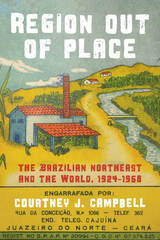
The Brazilian Northeast has long been a marginalized region with a complex relationship to national identity. It is often portrayed as impoverished, backward, and rebellious, yet traditional and culturally authentic. Brazil is known for its strong national identity, but national identities do not preclude strong regional identities. In Region Out of Place, Courtney J. Campbell examines how groups within the region have asserted their identity, relevance, and uniqueness through interactions that transcend national borders. From migration to labor mobilization, from wartime dating to beauty pageants, from literacy movements to representations of banditry in film, Campbell explores how the development of regional cultural identity is a modern, internationally embedded conversation that circulated among Brazilians of every social class. Part of a region-based nationalism that reflects the anxiety that conflicting desires for modernity, progress, and cultural authenticity provoked in the twentieth century, this identity was forged by residents who continually stepped out of their expected roles, taking their region’s concerns to an international stage.

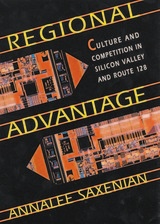
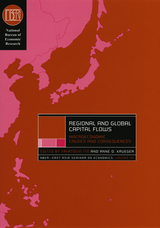
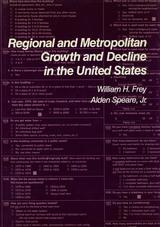

The Cuzco region of highland Peru was the heartland of the Inca empire, the largest native state to develop in the Americas. Archaeologists have studied Inca monumental architecture for more than a century, but it is only in recent decades that regional survey work has systematically sought to reconstruct patterns of settlement, subsistence, and social organization in the region. This monograph presents the results of regional surveys conducted (from 2000 to 2008) to the north and west of the city of Cuzco, a region of approximately 1200 square kilometers that was investigated using the same field methodology as other systematic surveys in the Cuzco region. The study region, referred to as Hanan Cuzco in this volume, encompasses considerable environmental variations, ranging from warm valley-bottom lands to snow-capped mountains. The chapters in this volume present settlement pattern data from all periods of pre-Columbian occupation—from the arrival of the first hunter-gatherers to the transformation of valley-bottom fields by the last Inca emperors. A chapter on the colonial period discusses how Spanish colonial practices transformed an imperial landscape into a peripheral one. Together, the chapters in this volume contribute to the archaeological understanding of several central issues in Andean prehistory.
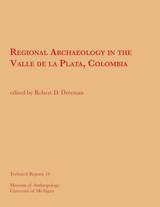
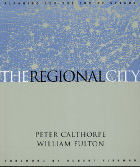
Most Americans today do not live in discrete cities and towns, but rather in an aggregation of cities and suburbs that forms one basic economic, multi-cultural, environmental and civic entity. These “regional cities” have the potential to significantly improve the quality of our lives--to provide interconnected and diverse economic centers, transportation choices, and a variety of human-scale communities. In The Regional City, two of the most innovative thinkers in the field of land use planning and design offer a detailed look at this new metropolitan form and explain how regional-scale planning and design can help direct growth wisely and reverse current trends in land use. The authors:
- discuss the nature and underpinnings of this new metropolitan form
- present their view of the policies and physical design principles required for metropolitan areas to transform themselves into regional cities
- document the combination of physical design and social and economic policies that are being used across the country
- consider the main factors that are shaping metropolitan regions today, including the maturation of sprawling suburbs and the renewal of urban neighborhoods

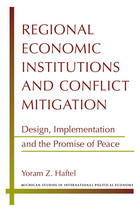
In addition to the explicit goal of advancing mutual economic interests, regional economic organizations (REOs) are intended to foster regional cohesion and peace. Drawing on a data set detailing the institutional features of 25 REOs established during the 1980s and 1990s, complemented by a case study of ASEAN, Yoram Z. Haftel investigates the factors that affect REOs' ability to mitigate interstate military conflict. He finds fewer interstate conflicts among REO members who have developed high levels of economic integration and who cultivate regular interaction among member-states' representatives. Haftel concludes that, with an appropriate institutional design and fully implemented agreements, an REO can indeed play a role in mitigating interstate conflict and make a meaningful contribution to regional peace.

Out of many, one—e pluribus unum—is the motto of the American nation, and it sums up neatly the paradox that Stephanie Foote so deftly identifies in Regional Fictions. Regionalism, the genre that ostensibly challenges or offers an alternative to nationalism, in fact characterizes and perhaps even defines the American sense of nationhood.
In particular, Foote argues that the colorful local characters, dialects, and accents that marked regionalist novels and short stories of the late nineteenth century were key to the genre’s conversion of seemingly dangerous political differences—such as those posed by disaffected Midwestern farmers or recalcitrant foreign nationals—into appealing cultural differences. She asserts that many of the most treasured beliefs about the value of local identities still held in the United States today are traceable to the discourses of this regional fiction, and she illustrates her contentions with insightful examinations of the work of Sarah Orne Jewett, Hamlin Garland, Gertrude Atherton, George Washington Cable, Jacob Riis, and others. Broadening the definitions of regional writing and its imaginative territory, Regional Fictions moves beyond literary criticism to comment on the ideology of national, local, ethnic, and racial identity.

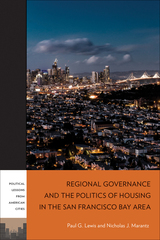
The authors evaluate six potential reforms, arguing that targeted changes to local and regional institutions could generate durable improvements to the region’s housing opportunities. The main lesson from the case of the San Francisco Bay Area is the need to focus on governance when addressing the housing challenge. As the authors effectively illustrate, leaving a solution up to individual cities is unlikely to lead to increased housing supply.



Regional Literature and the Transmission of Culture provides a richly textured picture of cultural transmission in the Qing and early Republican eras. Drum ballad texts (guci) evoke one of the most popular performance traditions of their day, a practice that flourished in North China. Study of these narratives opens up surprising new perspectives on vital topics in Chinese literature and history: the creation of regional cultural identities and their relation to a central “Chinese culture”; the relationship between oral and written cultures; the transmission of legal knowledge and popular ideals of justice; and the impact of the changing technology of the late nineteenth and early twentieth centuries on the reproduction and dissemination of popular texts.
Margaret B. Wan maps the dissemination over time and space of two legends of wise judges; their journey through oral, written, and visual media reveals a fascinating but overlooked world of “popular” literature. While drum ballads form a distinctively regional literature, lithography in early twentieth-century Shanghai drew them into national markets. The new paradigm this book offers will interest scholars of cultural history, literature, book culture, legal history, and popular culture.
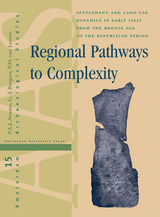
Synthesizing almost thirty years of Dutch archaeological research in central and southern Italy, this book discusses and compares settlement and land use patterns from the late protohistoric period to the late Roman Republic. Considering both social and environmental factors, the authors analyze the long-term progression of indigenous Bronze Age tribal pastoralist societies towards the complexity of urbanized Roman society. Drawing on a decade of collaboration between Dutch and Italian researchers, this exhaustive study will be of great interest to students and scholars of Mediterranean archaeology.
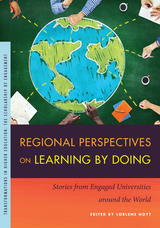
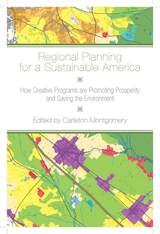
Regional Planning for a Sustainable America is the first book to represent the great variety of today’s effective regional planning programs, analyzing dozens of regional initiatives across North America.
The American landscape is being transformed by poorly designed, sprawling development. This sprawl—and its wasteful resource use, traffic, and pollution—does not respect arbitrary political boundaries like city limits and state borders. Yet for most of the nation, the patterns of development and conservation are shaped by fragmented, parochial local governments and property developers focused on short-term economic gain. Regional planning provides a solution, a means to manage human impacts on a large geographic scale that better matches the natural and economic forces at work. By bringing together the expertise of forty-two practitioners and academics, this book provides a practical guide to the key strategies that regional planners are using to achieve truly sustainable growth.
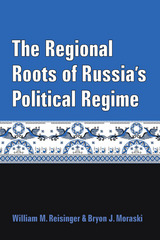
By analyzing successive federal elections, Reisinger and Moraski show that regions that led the way in delivering votes in Putin’s favor were those that had been both more independent and more authoritarian during the Yeltsin era. These authoritarian enclaves under Yeltsin became models of behavior in the Putin regime, which prized deferential election results. Other regions were quick to follow this lead, functioning during Putin’s ascendancy as “swing states.” Still, Russia’s regimes continued to exhibit regime diversity, with democratic enclaves resisting the push to become cogs in the Kremlin’s electoral authoritarian wheel.
While motivated by scholarly questions about authoritarianism, democracy, and the influence of subnational forces on national regime trajectories, Reisinger and Moraski also consider policy-relevant questions.
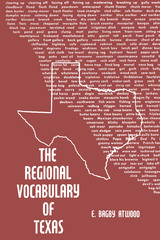
The vocabulary of Texas, and of the Southwest, has a character that sets it apart from all others. It is to some extent an amalgamation of words brought from other sections. A more important ingredient, however, has been a large group of words that initially grew into usage in Texas itself.
Utilizing a thorough knowledge of language and a remarkable insight into linguistics, E. Bagby Atwood has compiled a reference book for scholars, writers, and laypeople whose interests involve the use of this vocabulary. It is a well-balanced book, designed to present to the reader not only the actual vocabulary in use but also the area involved, topical surveys of words used, their backgrounds, and geographical aspects of their usage. Easterners and Westerners alike will relish the unique flavor of the Southwestern vocabulary.
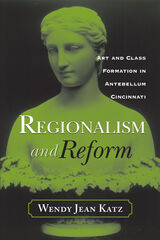
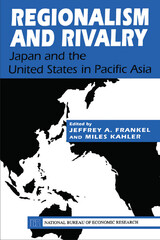
The authors contend that although intraregional trade in East Asia is growing rapidly, a trade bloc is not necessarily forming. They show that the trade increase can be explained entirely by factors independent of discriminatory trading arrangements, such as the rapid growth of East Asian economies. Other chapters look in detail at cases of Japanese direct investment in Southeast Asia and find little evidence of attempts by Japan to use the power of its multinational corporations for political purposes. A third group of papers attempt to gauge Japan's leadership characteristics. They focus on Japan's "technology ideology," its contributions to international public goods, international monetary cooperation, and economic liberalization in East Asia.
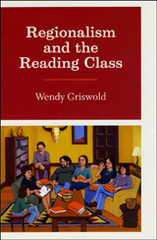
Wendy Griswold draws on cases from Italy, Norway, and the United States to show that fans of books form their own reading class, with a distinctive demographic profile separate from the general public. This reading class is modest in size but intense in its literary practices. Paradoxically these educated and mobile elites work hard to put down local roots by, among other strategies, exploring regional writing. Ultimately, due to the technological, economic, and political advantages they wield, cosmopolitan readers are able to celebrate, perpetuate, and reinvigorate local culture.
Griswold’s study will appeal to students of cultural sociology and the history of the book—and her findings will be welcome news to anyone worried about the future of reading or the eclipse of place.
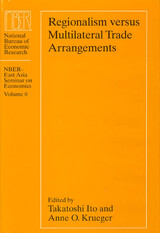
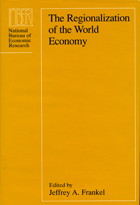
Including both empirical and theoretical studies, this volume addresses several important questions: Why do countries adopt FTAs and other regional trading arrangements? To what extent have existing regional arrangements actually affected patterns of trade? What are the welfare effects of such arrangements? Several chapters explore the economic effects of regional arrangements on patterns of trade, either on price differentials or via the gravity model on bilateral trade flows. In addition, this book examines the theoretical foundation of the gravity model. Making extensive use of the gravity model of bilateral trade, several chapters explore the economic effects of regional arrangements. In addition, this book examines the theoretical foundation of the gravity model.

Naylor seeks to rectify this imbalance by presenting a historical geography of regional science. Taking an in-depth look at the county of Cornwall, questions on how science affected provincial Victorian society, how it changed people’s relationship with the landscape and how it shaped society are applied to the Cornish case study, allowing a depth and texture of analysis denied to more general scientific overviews of the period.
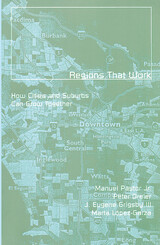

In this haunting debut collection, best-selling author Miles Harvey probes the mysterious relationship between human longings and the secret lives of inanimate objects. In one story, an artist discovers an uncanny ability to transform modern sculptures into priceless ancient treasures. In another, a teenager experiences visions of other people’s pasts while vandalizing their abandoned houses. In a third, a grieving couple returns again and again to the beach where their son disappeared, pulling plastic bottles, fishing nets, buoys, and other bits of beach trash from the surf “as if those random bits of wreckage were the untranslated hieroglyphs of some secret language that might help them understand their loss.”
Harvey—whose work Dave Eggers called “ludicrously unputdownable”—delivers a constellation of stories that explore the gravitational pull of material things: how they drift into and out of our hands, how they assume new meanings, and the ways they serve as conduits between the present and past, the everyday and incomprehensible. Most of all, he explores how these objects have the power to reveal strange and moving facets of the human condition.


As a member of the mid-sixteenth-century literary group La Pléiade, Joachim du Bellay sought to elevate his native French to the level of the classical languages—a goal pursued with great spirit, elegance, irony, and wit in the poems that comprise The Regrets. Widely viewed as one of the finest sonnet sequences in all of French literature, this Renaissance masterpiece wryly echoes the homesickness and longing of Ovid's poetry written in exile—because du Bellay finds himself lost in Rome, the very home Ovid longed for. In this translation by David R. Slavitt, these brilliant performances retain their original formal playfulness as well as their gracefully rendered but nonetheless moving melancholy. In decadent Rome, among hypocrites, thieves, and snobs, du Bellay uses his poetry as an opportunity for social satire and caustic self-criticism-it becomes a salvation of sorts, an approach peculiarly modern in its blending of the classical, the social, and the personal.
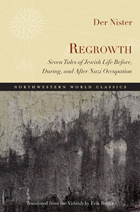
Der Nister paints a sympathetic portrait of the father, a member of the Jewish Council, even though he collaborates with the Nazis in a misguided attempt to help his people. To repair the father’s mistake, his daughter joins the resistance, seduces a traitor, and delivers him to his death. Accounts are settled within the Jewish community. The Nazi enemy is largely passed over in the silence his infamy deserves. Der Nister’s characters are crafty, and they do not hesitate to use force when necessary. After the defeat of the Nazis and Soviet takeover, Der Nister suggests, the maneuvering will continue. The morally complex characters and richly layered stories of Regrowth ultimately reclaim a more nuanced view of crimes still not fully reckoned.
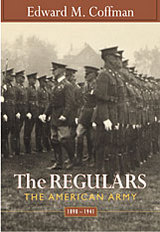
In 1898 the American Regular Army was a small frontier constabulary engaged in skirmishes with Indians and protesting workers. Forty-three years later, in 1941, it was a large modern army ready to wage global war against the Germans and the Japanese. In this definitive social history of America's standing army, military historian Edward Coffman tells how that critical transformation was accomplished.
Coffman has spent years immersed in the official records, personal papers, memoirs, and biographies of regular army men, including such famous leaders as George Marshall, George Patton, and Douglas MacArthur. He weaves their stories, and those of others he has interviewed, into the story of an army which grew from a small community of posts in China and the Philippines to a highly effective mechanized ground and air force. During these years, the U.S. Army conquered and controlled a colonial empire, military staff lived in exotic locales with their families, and soldiers engaged in combat in Cuba and the Pacific. In the twentieth century, the United States entered into alliances to fight the German army in World War I, and then again to meet the challenge of the Axis Powers in World War II.
Coffman explains how a managerial revolution in the early 1900s provided the organizational framework and educational foundation for change, and how the combination of inspired leadership, technological advances, and a supportive society made it successful. In a stirring account of all aspects of garrison life, including race relations, we meet the men and women who helped reconfigure America's frontier army into a modern global force.
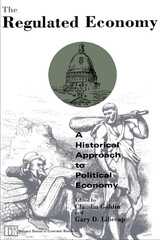
The Regulated Economy examines how constituent groups emerged and demanded government action to solve perceived economic problems, such as exorbitant railroad and utility rates, bank failure, falling agricultural prices, the immigration of low-skilled workers, workplace injury, and the financing of government. The contributors look at how preexisting policies, institutions, and market structures shaped regulatory activity; the origins of regulatory movements at the state and local levels; the effects of consensus-building on the timing and content of legislation; and how well government policies reflect constituency interests.
A wide-ranging historical view of the way interest group demands and political bargaining have influenced the growth of economic regulation in the United States, this book is important reading for economists, political scientists, and public policy experts.



A leading scholar of twentieth-century American history looks again at the beginning of the century, this time giving us a remarkable portrait of the emergence of modern society and its distinctive transformations and social problems. As in Regulating a New Economy, his earlier book on the changing American economy, Morton Keller integrates political, legal, and governmental history, now providing the first comprehensive study of the ideas and interests that shaped early twentieth-century American social policy.
Keller looks at the major social institutions: the family, voluntary associations, religion, and education. He examines important social issues: the rights of the individual, the regulation of public mores (gambling, drugs, prostitution, alcohol abuse), the definition and punishment of crime, and social welfare policy (poverty, public health, conditions of labor). His final area of concern is one that assumed new importance after 1900: social policy directed at major groups, such as immigrants, blacks, Native Americans, and women.
The interpretive theme is fresh and controversial. Keller sees early twentieth-century American government not as an artifact of class, race, and gender conflict but as the playing out of tension between the Progressive thrust to restore social cohesion through the principle of order and organization and two other, mutually antipodal, social interests: the weight of the American past and the growing pluralism of modern America. The interplay among these elements—progressivism, persistence, pluralism—shaped early twentieth-century social policy. The result was no clear victory for any one of these public attitudes, but rather the emergence and delineation of most of the social issues that have dominated American public life for the rest of the century.
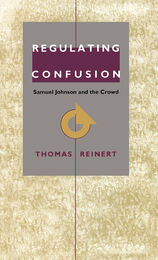
Ambivalent about the disruption, confusion, perplexity, and boundless variety apparent in the London of his day, Johnson was committed to the conventions of moral reflection but also troubled by the pressure to adopt the perspective of the crowd and the language of social theory. Regulating Confusion explores the consequences of his ambivalence and his attempt to order the chaos. It discusses his critique of moral generalizations, concept of moral reflection as a symbolic gesture, and account of what happens to the notion of character when individuals, having lost the support of moral convention, become faces in a crowd. Reflecting generally on the relationship between skepticism and political ideology, Reinert also discusses Johnson’s political skepticism and the forms of speculation and action it authorized.
Challenging prevalent psychologizing and humanistic interpretations, Regulating Confusion leaves behind the re-emergent view of Johnson as a reactionary ideologue and presents him in a theoretically sophisticated context. It offers his style of skepticism as a model of poise in the face of confusion about the nature of political truth and personal responsibility and demonstrates his value as a resource for students of culture struggling with contemporary debates about the relationship between literature and politics.
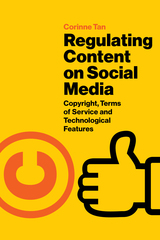
The first book to look at how social media platforms affect users’ compliance with copyright laws, Regulating Content on Social Media is a timely addition to the current media landscape.
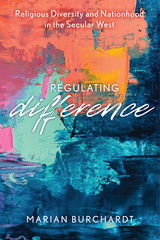
Transnational migration has contributed to the rise of religious diversity and has led to profound changes in the religious make-up of society across the Western world. As a result, societies and nation-states have faced the challenge of crafting ways to bring new religious communities into existing institutions and the legal frameworks. Regulating Difference explores how the state regulates religious diversity and examines the processes whereby religious diversity and expression becomes part of administrative landscapes of nation-states and people’s everyday lives. Arguing that concepts of nationhood are key to understanding the governance of religious diversity, Regulating Difference employs a transatlantic comparison of the Spanish region of Catalonia and the Canadian province of Quebec to show how processes of nation-building, religious heritage-making and the mobilization of divergent interpretations of secularism are co-implicated in shaping religious diversity. It argues that religious diversity has become central for governing national and urban spaces.


The Supreme Court has ruled that states may prohibit physician-assisted suicide. Expressing the views of his fellow justices, Chief Justice Rehnquist wrote, "Americans are engaged in an earnest and profound debate about the morality, legality, and practicality of physician-assisted suicide. Our holding permits this debate to continue." Regulating How We Die is certain to be a landmark contribution to that debate.Dr. Linda Emanuel--one of America's most influential medical ethicists--has assembled leading experts to provide not only a clear account of the arguments for and against physician-assisted suicide and euthanasia but also historical, empirical, and legal perspectives on this complicated issue. These contributors include Marcia Angell, George Annas, Susan Wolf, and many others.
The important questions are addressed here, including: What does mercy dictate? Does physician-assisted suicide honor or violate autonomy? Is it more dignified than natural death? Is this decision purely a private matter? Will legalizing physician-assisted suicide put us on a slippery slope toward involuntary euthanasia? And, in an analysis of data not available in any other book, what can we learn from Holland, the only country in which physician-assisted suicide and euthanasia are legal?
Regulating How We Die will be essential reading for anyone who has been handed a terminal diagnosis, for people close to those facing such a diagnosis, for professionals, including physicians, nurses, pastors, lawyers, legislators--indeed, for anyone who has considered the moral and political debate over doctor-assisted suicide.
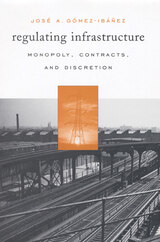
In the 1980s and ’90s many countries turned to the private sector to provide infrastructure and utilities, such as gas, telephones, and highways—with the idea that market-based incentives would control costs and improve the quality of essential services. But subsequent debacles including the collapse of California’s wholesale electricity market and the bankruptcy of Britain’s largest railroad company have raised troubling questions about privatization. This book addresses one of the most vexing of these: how can government fairly and effectively regulate “natural monopolies”—those infrastructure and utility services whose technologies make competition impractical?
Rather than sticking to economics, José Gómez-Ibáñez draws on history, politics, and a wealth of examples to provide a road map for various approaches to regulation. He makes a strong case for favoring market-oriented and contractual approaches—including private contracts between infrastructure providers and customers as well as concession contracts with the government acting as an intermediary—over those that grant government regulators substantial discretion. Contracts can provide stronger protection for infrastructure customers and suppliers—and greater opportunities to tailor services to their mutual advantage. In some cases, however, the requirements of the firms and their customers are too unpredictable for contracts to work, and alternative schemes may be needed.
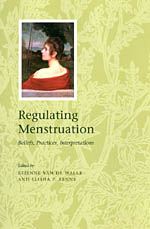
Originating from an Internet conference held in February 1998, this volume contains fourteen papers that have been revised and updated to cover everything from the impact of the birth control pill to contemporary views on reproduction to the pharmacological properties of various herbal substances, reflecting the historical, contemporary, and anthropological perspectives of this timely and complex issue.
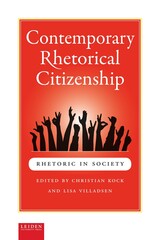

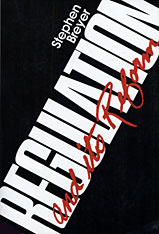
This book will become the bible of regulatory reform. No broad, authoritative treatment of the subject has been available for many years except for Alfred Kahn’s Economics of Regulation (1970). And Stephen Breyer’s book is not merely a utilitarian analysis or a legal discussion of procedures; it employs the widest possible perspective to survey the full implications of government regulation—economic, legal, administrative, political—while addressing the complex problems of administering regulatory agencies.
Only a scholar with Judge Breyer’s practical experience as chief counsel to the Senate Judiciary Committee could have accomplished this task. He develops an ingenious original system for classifying regulatory activities according to the kinds of problems that have called for, or have seemed to call for, regulation; he then examines how well or poorly various regulatory regimes remedy these market defects. This enables him to organize an enormous amount of material in a coherent way, and to make significant and useful generalizations about real-world problems.
Among the regulatory areas he considers are health and safety; environmental pollution, trucking, airlines, natural gas, public utilities, and telecommunications. He further gives attention to related topics such as cost-of-service ratemaking, safety standards, antitrust, and property rights. Clearly this is a book whose time is here—a veritable how-to-do-it book for administration deregulators, legislators, and the judiciary; and because it is comprehensive and superbly organized, with a wealth of highly detailed examples, it is practical for use in law schools and in courses on economics and political science.
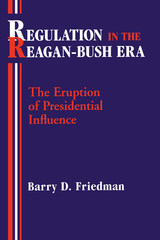
From Harry Truman through Jimy Carter, chief executives complained that federal bureaucrats disregarded their policy preferences. presidential influence over regulatory rule making was limited: congressional committees and interest groups commanded more attention. Then in February 1981 Ronal regan abruptly departed from tradition by ordering that regulatory agencies must submit proposed guidelines for Office of Management and Budget approval.
Barry D. friedman describes how the executive agencies and Congress responded warily and with skepticism, yet allowed the changes to remain; the judiciary was also willing to retreat from time-honored precedents that had preserved agency prerogative and now accorded due respect to the revolutionary Regan reform initiatives. Institutions that competed for leverage in the system continued to exercise restraint in their mutual relations because they recognized taht all benefitted from the others' viability.
This book shows that conventional political science theories and models are now obsolete because of the eruption of presidential control into bureaucratic affairs. new review procedures have restructured relations between the president and the agencies and among the government's three branches. because of Regan's radical initiative, President Bill Clinton and his successors will sit at the bargaining table when regulation policy is developed in Washington, and political theorists will have to work from a new conception of presidential prerogative.
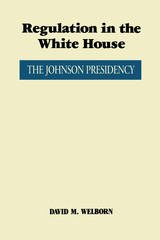
Regulation in the White House is an examination of regulatory policy and its development in the Johnson administration and the first comprehensive study of any presidency and regulation. Based upon a thorough analysis of presidential papers in the Lyndon B. Johnson Library, the book investigates the working relationships linking the presidency, regulatory commissions, and executive agencies with regulatory responsibilities in both the economic and social spheres.
David Welborn finds that the president's business included regulation as a major component. Johnson's concerns in regulation were varied and complex. He and his aides worked assiduously and successfully to establish effective, cooperative relationships with regulators and to avoid the exercise of undue influence on particular regulatory determinations. In Welborn's view, Johnson traversed the treacherous ground of regulatory politics with adeptness and achieved his major purposes in regulation.
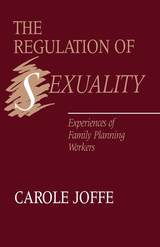
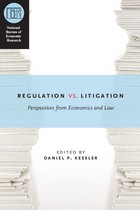
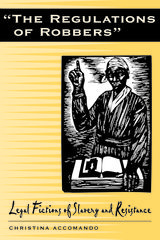
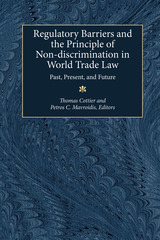
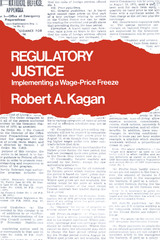
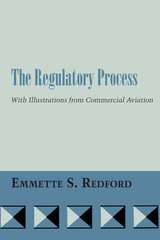
The subject of regulation is one of the most vital and troublesome in our system of government. In this detailed study of early and mid-twentieth-century regulation of commercial aviation Emmette S. Redford illustrates what happens when government regulates a particular industry.
He first sets forth the perspectives for a study of an area of regulation and develops an argument for eclectic perspectives in the study of selected systems, or universes, of social action, such as the performance of an economic function under government regulation.
These perspectives are illustrated in the following series of case studies on regulation of commercial aviation:
- The significance of belief patterns on the content of the Civil Aeronautics Act of 1938.
- The role of Congress in the regulation of commercial aviation in a two-year period.
- The interactions of Congress, the president, and the regulated industry in strengthening safety regulation through passage of the Federal Aviation Act of 1958.
- The actions of the Civil Aeronautics Board on a set of complicated economic issues in the General Passenger Fare Investigation.
- The position of the Air Transport Association in the regulatory pattern.
In "An Essay on Evaluation" Redford summarizes what is revealed in the case studies that is significant with respect to the system of government regulation. He searches for standards for evaluating a system of social control, or for evaluating parts of it, and relates his conclusions to issues regarding the beneficence of a system of regulated private supply of a service.
The Regulatory Process is a study of interest to the aviation industry, to students of regulation of the economy, and to those who seek an understanding of social systems.
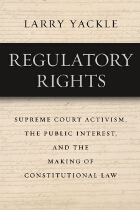
Traversing a wide range of Supreme Court decisions that established crucial precedents about racial discrimination, the death penalty, and sexual freedom, Yackle contends that the rights we enjoy are neither more nor less than what the justices choose to make of them. Regulatory Rights is a bracing read that will be heatedly debated by all those interested in constitutional law and the judiciary.

Are rent controls and zoning regulations unconstitutional? Should the Supreme Court strike down the Endangered Species Act when its administration interferes with the use of private property? These questions are currently debated under the doctrine of regulatory takings, and William Fischel’s book offers a new perspective on the issue.
Regulatory Takings argues that the issue is not so much about the details of property law as it is about the fairness of politics. The book employs jurisprudential theories, economic analysis, historical investigation, and political science to show why local land use regulations, such as zoning and rent control, deserve a higher degree of judicial scrutiny than national regulations. Unlike other books on this topic, Regulatory Takings goes beyond case law to buttress its arguments. Its reality checks range from reviews of statistical evidence to local inquiries about famous takings cases such as Pennsylvania Coal v. Mahon and Lucas v. South Carolina Coastal Commission. The gap between legal theory and on-the-ground practice is one reason that Fischel investigates alternative means of protecting property rights.
Local governments are often deterred from unfairly regulating portable assets by their owners’ threat of “exit” from the jurisdiction. State and federal government regulations are disciplined by property-owner coalitions whose “voice” is clearly audible in the statehouses and in Congress.
Constitutional courts need to preserve their resources for use in areas in which politics is loaded against the property owner. Regulatory Takings advances an economic standard to decide when a local regulation crosses the border from legitimate police power to a taking that requires just compensation for owners who are adversely affected.

The first study of the Fort Worth Narcotic Farm, an institution that played a critical role in fusing the War on Drugs, mass incarceration, and public health in the American West.
In 1929, the United States government approved two ground-breaking and controversial drug addiction treatment programs. At a time when fears about a supposed rise in drug use reached a fevered pitch, the emergence of the nation’s first “narcotic farms” in Fort Worth, Texas, and Lexington, Kentucky, marked a watershed moment in the treatment of addiction. Rehab on the Range is the first in-depth history of the Fort Worth Narcotic Farm and its impacts on the American West. Throughout its operation from the 1930s to the 1970s, the institution was the only federally funded drug treatment center west of the Mississippi River. Designed to blend psychiatric treatment, physical rehabilitation, and vocational training, the Narcotic Farm, its proponents argued, would transform American treatment policies for the better. The reality was decidedly more complicated.
Holly M. Karibo tells the story of how this institution—once framed as revolutionary for addiction care—ultimately contributed to the turn towards incarceration as the solution to the nation’s drug problem. Blending an intellectual history of addiction and imprisonment with a social history of addicts’ experiences, Rehab on the Range provides a nuanced picture of the Narcotic Farm and its cultural impacts. In doing so, it offers crucial historical context that can help us better understand our current debates over addiction, drug policy, and the rise of mass incarceration.

In this timely reevaluation of an infamous Supreme Court decision, David E. Bernstein provides a compelling survey of the history and background of Lochner v. New York. This 1905 decision invalidated state laws limiting work hours and became the leading case contending that novel economic regulations were unconstitutional. Sure to be controversial, Rehabilitating Lochner argues that the decision was well grounded in precedent—and that modern constitutional jurisprudence owes at least as much to the limited-government ideas of Lochner proponents as to the more expansive vision of its Progressive opponents.
Tracing the influence of this decision through subsequent battles over segregation laws, sex discrimination, civil liberties, and more, Rehabilitating Lochner argues not only that the court acted reasonably in Lochner, but that Lochner and like-minded cases have been widely misunderstood and unfairly maligned ever since.
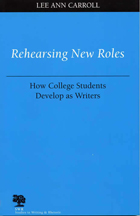
In Rehearsing New Roles: How College Students Develop as Writers, Lee Ann Carroll argues for a developmental perspective to counter the fantasy held by many college faculty that students should, or could, be taught to write once so that ever after, they can write effectively on any topic, any place, any time. Carroll demonstrates in this volume why a one- or two-semester, first-year course in writing cannot meet all the needs of even more experienced writers. She then shows how students’ complex literacy skills develop slowly, often idiosyncratically, over the course of their college years, as they choose or are coerced to take on new roles as writers.
As evidence, Carroll offers a longitudinal study of a group of students and the literacy environment they experienced in a midsize, independent university. Her study follows the experiences that altered their conception of writing in college and fostered their growing capacities as writers.
Carroll’s analysis of the data collected supports a limited but still useful role for first-year composition, demonstrates how students do learn to write differently across the curriculum in ways that may or may not be recognized by faculty, and evaluates the teaching and learning practices that promote or constrain students’ development.
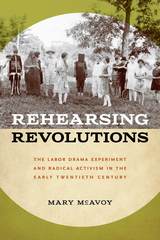
Choice Outstanding Academic Title, 2019
George Freedley Memorial Award Finalist, 2020
Between the world wars, several labor colleges sprouted up across the U.S. These schools, funded by unions, sought to provide members with adult education while also indoctrinating them into the cause. As Mary McAvoy reveals, a big part of that learning experience centered on the schools’ drama programs. For the first time, Rehearsing Revolutions shows how these left-leaning drama programs prepared American workers for the “on-the-ground” activism emerging across the country. In fact, McAvoy argues, these amateur stages served as training grounds for radical social activism in early twentieth-century America.Using a wealth of previously unpublished material such as director’s reports, course materials, playscripts, and reviews, McAvoy traces the programs’ evolution from experimental teaching tool to radically politicized training that inspired overt—even militant—labor activism by the late 1930s. All the while, she keeps an eye on larger trends in public life, connecting interwar labor drama to post-war arts-based activism in response to McCarthyism, the Cold War, and the Civil Rights movement. Ultimately, McAvoy asks: What did labor drama do for the workers’ colleges and why did they pursue it? She finds her answer through several different case studies in places like the Portland Labor College and the Highlander Folk School in Tennessee.




Kevin Floyd brings queer critique to bear on the Marxian categories of reification and totality and considers the dialectic that frames the work of Georg Lukács, Herbert Marcuse, and Fredric Jameson. Reading the work of these theorists together with influential queer work by such figures as Michel Foucault and Judith Butler, and alongside reconsiderations of such texts as The Sun Also Rises and Midnight Cowboy, Floyd reformulates these two central categories that have been inseparable from a key strand of Marxist thought and have marked both its explanatory power and its limitations. Floyd theorizes a dissociation of sexuality from gender at the beginning of the twentieth century in terms of reification to claim that this dissociation is one aspect of a larger dynamic of social reification enforced by capitalism.
Developing a queer examination of reification and totality, Kevin Floyd ultimately argues that the insights of queer theory require a fundamental rethinking of both.

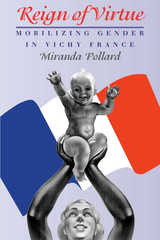
Drawing on governmental archives, historical texts, and propaganda, Pollard explores what most historians have ignored: the many ways in which Vichy's politicians used gendered images of work, family, and sexuality to restore and maintain political and social order. She argues that Vichy wanted to return France to an illustrious and largely mythical past of harmony, where citizens all knew their places and fulfilled their responsibilities, where order prevailed. The National Revolution, according to Pollard, replaced the ideals of liberty, equality, and fraternity with work, family, and fatherland, making the acceptance of traditional masculine and feminine roles a key priority. Pollard shows how Vichy's policies promoted the family as the most important social unit of a new France and elevated married mothers to a new social status even as their educational, employment, and reproductive rights were strictly curtailed.
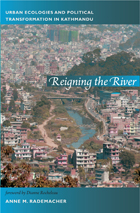
Rademacher conducted research during a volatile period in Nepal’s political history. As clashes between Maoist revolutionaries and the government intensified, the riverscape became a site of competing claims to a capital city that increasingly functioned as a last refuge from war-related violence. In this time of intense flux, efforts to ensure, create, or imagine ecological stability intersected with aspirations for political stability. Throughout her analysis, Rademacher emphasizes ecology as an important site of dislocation, entitlement, and cultural meaning.
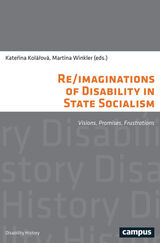
In Re/imaginations of Disability in State Socialism, an interdisciplinary group of scholars examines how disability has been conceptualized and treated in socialist states throughout global history. Drawing on intersectional theories that set disability in conversation with other identity categories such as race, age, gender, and sexuality, this book offers a unique approach to this crucial issue.



Reimagining a Place for the Wild contains a diverse collection of personal stories that describe encounters with the remaining wild creatures of the American West and critical essays that reveal wildlife’s essential place in western landscapes. Gleaned from historians, journalists, biologists, ranchers, artists, philosophers, teachers, and conservationists, these narratives expose the complex challenges faced by wild animals and those devoted to understanding them. Whether discussing keystone species like grizzly bears and gray wolves or microfauna swimming the thermal depths of geysers, these accounts reflect the authors’ expertise as well as their wonder and respect for wild nature. The writers do more than inform our sensibilities; their narratives examine both humanity’s conduct and its capacity for empathy toward other life. A selection of photos and paintings punctuates the volume.
This collection sprang from the Reimagine Western Landscapes Symposium held at the University of Utah’s Taft-Nicholson Environmental Humanities Education Center in Centennial Valley, Montana. These testaments join a chorus of voices seeking improved relations with the western wild in the twenty-first century.

Winner, 2011 Pulitzer Prize for Drama
Winner, 2012 Tony Award for Best Play
Winner, 1974 National Book Award for Philosophy and Religion
In 1959, Lorraine Hansberry’s A Raisin in the Sun energized the conversation about how Americans live together across lines of race and difference. In Reimagining “A Raisin in the Sun,” Rebecca Ann Rugg and Harvey Young bring together four contemporary plays—including 2011 Pulitzer Prize for Drama winner Clybourne Park—that, in their engagement with Hansberry’s play, illuminate the tensions and anxieties that still surround neighborhood integration.
Although the plays—Robert O’Hara’s Etiquette of Vigilance, Gloria Bond Clunie’s Living Green, Branden Jacobs-Jenkins’s Neighbors, and Bruce Norris’s Clybourne Park—are distinct from one another in terms of style and perspective on their predecessor, they commonly feature characters who are forced to closely examine, and sometimes revise or abandon, their ideas concerning race and their notions of social and economic justice. Above all, the plays use the lenses of neighborliness, privacy, and community to engage the large question of America’s common purpose. Each play is accompanied by an interview with the playwright about the influence of Hansberry’s landmark work. The afterword includes an interview with George C. Wolfe, whose play The Colored Museum laid the groundwork for the titles in this collection.
The conversation around A Raisin in the Sun has continued unabated since its premiere fifty years ago. Rugg and Young’s book will serve as a valuable resource to fans, scholars, and students alike.
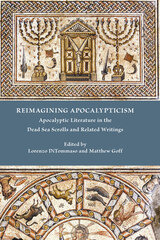


Reimagining Courts recommends a triage process based upon case characteristics, litigant goals, and resolution processes. Courts must fundamentally reorganize their business processes around the concept of the litigant as a customer. Each adjudication process that the authors propose requires a different case management process and different amounts of judicial, staff, and facility resources.
Reimagining Courts should spark much-needed debate. This book will be of significant interest to lawyers, judges, and professionals in the court system as well as to scholars in public administration and political science.


Reading across centuries and genres, Knoeller gives us a vibrant new appraisal of Midwestern/North American interior literary traditions and makes clear how vital environmental writing is to this region. To date, no one has written such an eloquent and comprehensive cross-genre analysis of Midwestern environmental literature.
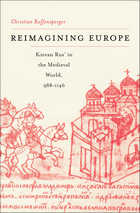
An overriding assumption has long directed scholarship in both European and Slavic history: that Kievan Rus' in the tenth through twelfth centuries was part of a Byzantine commonwealth separate from Europe. Christian Raffensperger refutes this conception and offers a new frame for two hundred years of history, one in which Rus' is understood as part of medieval Europe and East is not so neatly divided from West.
With the aid of Latin sources, the author brings to light the considerable political, religious, marital, and economic ties among European kingdoms, including Rus', restoring a historical record rendered blank by Russian monastic chroniclers as well as modern scholars ideologically motivated to build barriers between East and West. Further, Raffensperger revises the concept of a Byzantine commonwealth that stood in opposition to Europe-and under which Rus' was subsumed-toward that of a Byzantine Ideal esteemed and emulated by all the states of Europe. In this new context, appropriation of Byzantine customs, law, coinage, art, and architecture in both Rus' and Europe can be understood as an attempt to gain legitimacy and prestige by association with the surviving remnant of the Roman Empire. Reimagining Europe initiates an expansion of history that is sure to challenge ideas of Russian exceptionalism and influence the course of European medieval studies.

What is unique about Indian secularism? In this book, Rajeev Bhargava argues that secularism in India, as opposed to in the West, did not arise in a society that had already been religiously homogenized, where the need of the hour was to break the political nexus between church and state. In India, secularism does not demand that the state is against or indifferent to religion, but rather that it combat institutionalized religious domination, both between and within religions. Apathy or antipathy to religion, Bhargava points out, would foment inter-religious rivalries that intensify anti-reformist tendencies, fueling further division.
As secularism receives daily ridicule in India, Bhargava provides an account of how this “principled distance” from religion has been a victim of misunderstandings by its proponents, abuse by its practitioners, and deliberate distortion by its opponents. Reimagining Indian Secularism offers a proposal of how we might one day be able to rehabilitate secularism.
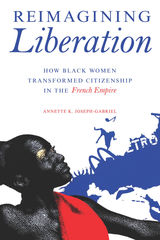
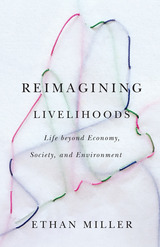
A provocative reassessment of the concepts underlying the struggle for sustainable development
Much of the debate over sustainable development revolves around how to balance the competing demands of economic development, social well-being, and environmental protection. “Jobs vs. environment” is only one of the many forms that such struggles take. But what if the very terms of this debate are part of the problem? Reimagining Livelihoods argues that the “hegemonic trio” of economy, society, and environment not only fails to describe the actual world around us but poses a tremendous obstacle to enacting a truly sustainable future.
In a rich blend of ethnography and theory, Reimagining Livelihoods engages with questions of development in the state of Maine to trace the dangerous effects of contemporary stories that simplify and domesticate conflict. As in so many other places around the world, the trio of economy, society, and environment in Maine produces a particular space of “common sense” within which struggles over life and livelihood unfold. Yet the terms of engagement embodied by this trio are neither innocent nor inevitable. It is a contingent, historically produced configuration, born from the throes of capitalist industrialism and colonialism. Drawing in part on his own participation in the struggle over the Plum Creek Corporation’s “concept plan” for a major resort development on the shores of Moosehead Lake in northern Maine, Ethan Miller articulates a rich framework for engaging with the ethical and political challenges of building ecological livelihoods among diverse human and nonhuman communities.
In seeking a pathway for transformative thought that is both critical and affirmative, Reimagining Livelihoods provides new frames of reference for living together on an increasingly volatile Earth.

With globalization has come an increased focus on food—where it comes from, how it is transported, who eats it, and what cultural significance it has. This volume brings together ethnographically based anthropological analyses of shifting meanings and representations associated with the foods, ingredients, and cooking practices of marginalized and/or indigenous cultures. Contributors are particularly interested in how these foods intersect with politics, nationhood and governance, identity, authenticity, and conservation.
The chapters cover diverse locales, issues, and foods: the cultural meanings of sinonggi, a thick sago porridge from Sulawesi, Indonesia; the significance of pom, a Surinam dish popular in the Netherlands; the transformation of alpaca meat in Peru; the impact of culinary tourism on indigenous cuisine in Mexico; the re-presenting of minor millets in South India; and the development of cheeses in the Italian Alps. A conceptual essay on food and social boundaries rounds out the collection.
Throughout, the contributors address important questions, including: How are traditional foods “repackaged” in the process of mainstreaming access? What does this repackaging mean for the ways local or indigenous peoples view their traditional food practices? How are local cuisines mobilized in movements to create national images and identities? What tensions emerge between new representations of foods and local cultural meanings?
Together the contributors provide a thoughtful inquiry into what happens when food and culinary practices are moved from the cultural or physical margins, and how such movements can be shaped by—and employed in the pursuit of—political, social, and cultural goals.
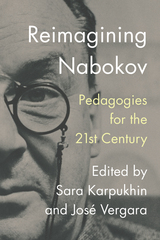
“It is both timely and refreshing to have an influx of teacher-scholars who engage Nabokov from a variety of perspectives… this volume does justice to the breadth of Nabokov’s literary achievements, and it does so with both pedagogical creativity and scholarly integrity."—Dana Dragunoiu, Carleton University
"[A] valuable study for any reader, teacher, scholar, or student of Nabokov. Amongst specific and urgent insights on the potential for digital methods, the relevance of Nabokov for students today, and how to reconcile issues of identity with an author who disavowed history and politics, are much wider and timeless questions of authorial control and the ability to access reality."—Anoushka Alexander-Rose, Nabokov Online Journal
Contributions by Galya Diment, Tim Harte, Robyn Jensen, Sara Karpukhin, Yuri Leving, Roman Utkin, José Vergara, Meghan Vicks, Olga Voronina, Lisa Ryoko Wakamiya, and Matthew Walker.
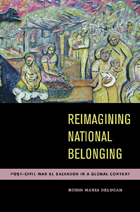
Examining events that unfolded between 1992 and 2011, DeLugan both illustrates the idiosyncrasies of state and society in El Salvador and opens a larger portal into conditions of constructing a state in the present day around the globe—particularly the process of democratization in an age of neoliberalism. She demonstrates how academics, culture experts, popular media, and the United Nations and other international agencies have all helped shape ideas about national belonging in El Salvador. She also reveals the efforts that have been made to include populations that might have been overlooked, including indigenous people and faraway citizens not living inside the country’s borders. And she describes how history and memory projects have begun to recall the nation’s violent past with the goal of creating a more just and equitable nation.
This illuminating case study fills a gap in the scholarship about culture and society in contemporary El Salvador, while offering an “ethnography of the state” that situates El Salvador in a global context.
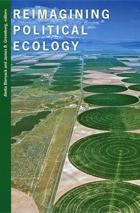
Aletta Biersack’s introduction takes stock of where political ecology has been, assesses the field’s strengths, and sets forth a bold research agenda for the future. Two essays offer wide-ranging critiques of modernist ecology, with its artificial dichotomy between nature and culture, faith in the scientific management of nature, and related tendency to dismiss local knowledge. The remaining eight essays are case studies of particular constructions and appropriations of nature and the complex politics that come into play regionally, nationally, and internationally when nature is brought within the human sphere. Written by some of the leading thinkers in environmental anthropology, these rich ethnographies are based in locales around the world: in Belize, Papua New Guinea, the Gulf of California, Iceland, Finland, the Peruvian Amazon, Malaysia, and Indonesia. Collectively, they demonstrate that political ecology speaks to concerns shared by geographers, sociologists, political scientists, historians, and anthropologists alike. And they model the kind of work that this volume identifies as the future of political ecology: place-based “ethnographies of nature” keenly attuned to the conjunctural effects of globalization.
Contributors. Eeva Berglund, Aletta Biersack, J. Peter Brosius, Michael R. Dove, James B. Greenberg, Søren Hvalkof, J. Stephen Lansing, Gísli Pálsson, Joel Robbins, Vernon L. Scarborough, John W. Schoenfelder, Richard Wilk
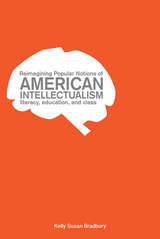
Bradbury begins by tracing the origins and evolution of the narrow views of intellectualism that are common in the United States today. Then, applying a more inclusive and egalitarian definition of intellectualism, she examines the literacy and learning practices of three nonelite sites of adult public education in the United States: the nineteenth-century lyceum, a twentieth-century labor college, and a twenty-first-century GED writing workshop. Bradbury argues that together these three case studies teach us much about literacy, learning, and intellectualism in the United States over time and place. She concludes the book with a reflection on her own efforts to aid students in recognizing and resisting the rhetoric of anti-intellectualism that surrounds them and that influences their attitudes and actions.
Drawing on case studies as well as Bradbury’s own experiences with students, Reimagining Popular Notions of American Intellectualism demonstrates that Americans have engaged and do engage in the process and exercise of intellectual inquiry, contrary to what many people believe. Addressing a topic often overlooked by rhetoric, composition, and literacy studies scholars, it offers methods for helping students reimagine what it means to be intellectual in the twenty-first century.

For more than four decades, the dominant model for pedagogy and research in the field of composition has been a how-centered process approach to writing instruction, which involves studying the writing that students produce to expose the various stages of their writing process. By looking at notes, outlines, and multiple drafts, often presented by students together in the form of a portfolio, instructors can identify unproductive habits that students may have and provide techniques that help them improve their writing. In this groundbreaking volume, Kyle Jensen critiques traditional how-centered process instruction and presents a sound, practical methodology by which portfolios and online writing archives—digital interfaces that expose the marks of revision writers make during composition—might be employed to develop theories about what writing is: how it occurs, functions, circulates, creates meaning, and forms its subjects. Offering online writing archives as a way to envision a transdisciplinary approach to writing studies, Reimagining Process does not abandon the prevailing concepts of process pedagogy but rather casts them in wider contexts to conceive new ways of teaching and studying writing.

This innovative collection reinvents the standard American short fiction anthology and offers readers an invigorated, inclusive, and nuanced understanding of American literary history and culture from the Civil War to the end of World War I.
Beginning with one of Louisa May Alcott’s Hospital Sketches, originally published in 1863, this anthology offers a refreshing perspective on American literature from the latter half of the nineteenth century through the first decades of the twentieth. Based on Alcott’s brief stint as a Civil War nurse, Hospital Sketches stands in contrast to the sentimentality of her better-known Little Women and illustrates a blending of romanticism and realism. Furthermore, its thematic focus on the tension between idealized notions of noble, patriotic duty and the horrific reality of war exemplifies a dominant American cultural mindset at the time.
Following this model of complicating accepted ideas about realism and of particular authors, Reimagining Realism brings together dozens of texts that engage with the immense changes and upheavals that characterized American culture over the next six decades: war, abolition, voting rights, westward expansion, immigration, racism and ethnocentrism, industrial production, labor reforms, transportation, urban growth, journalism, mass media, education, and economic disparity.
Reimagining Realism presents a collection of works much more diverse than what is typically found in other anthologies of short fiction from this era. Some selections are lesser-known works by familiar authors that enable readers to see dimensions of these authors that are rarely considered but deserve further study. The book also features authors from many previously underrepresented groups and includes some outstanding works by authors whose names are almost completely unknown to today’s readers—but which deserve greater attention.
The volume’s editors, in their intent to spur readers to further reimagine realism, to represent the spectrum of viewpoints prevalent during this era, and to spark critical thinking and productive discussion, have been careful not to apply any type of political litmus test to the included works. They have also refrained from categorizing works according to convention, so as not to predispose readers to restrictive interpretations, and have provided only brief, highly readable headnotes and annotations that will help readers better understand the texts.
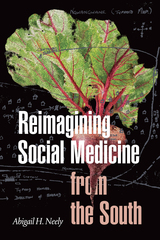

Wilson begins by tracing the arrival of American commerce and culture in the Pacific through missionary and imperial forces in the nineteenth century and the parallel development of Asia/Pacific as an idea. Using an impressive range of texts—from works by Herman Melville, James Michener, Maori and Western Samoan novelists, and Bamboo Ridge poets to Baywatch, films and musicals such as South Pacific and Blue Hawaii, and native Hawaiian shark god poetry—Wilson illustrates what it means for a space to be “regionalized.” Claiming that such places become more open to transnational flows of information, labor, finance, media, and global commodities, he explains how they then become isolated, their borders simultaneously crossed and fixed. In the case of Hawai’i, Wilson argues that culturally innovative, risky forms of symbol making and a broader—more global—vision of local plight are needed to counterbalance the racism and increasing imbalance of cultural capital and goods in the emerging postplantation and tourist-centered economy.
Reimagining the American Pacific leaves the reader with a new understanding of the complex interactions of global and local economies and cultures in a region that, since the 1970s, has been a leading trading partner of the United States. It is an engaging and provocative contribution to the fields of Asian and American studies, as well as those of cultural studies and theory, literary criticism, and popular culture.

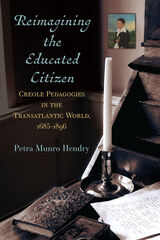
Reimagining the Educated Citizen contends that the constructs of public education and citizenship in the struggle to constitute a U.S. national identity are inseparable from the simultaneous emergence of transatlantic constructs of an educated citizen along transnational and transracial lines. The nineteenth century is commonly understood as the age of nationalism and nation formation in which the Anglo-Protestant Common School movement takes center stage in the production of the American democratic citizen. Ironically, the argument for public, Common Schools privileged whiteness instead of equality. This book suggests that an alternative vision of the relationship between education and citizenship emerged from a larger transatlantic history. Given shape by the movement of people, ideas, commodities, and practices across the Caribbean, Africa, Europe, the Gulf of Mexico and the Mississippi Valley, this radical egalitarian vision emerged at the crossroads of the Atlantic-colonial and antebellum Louisiana.
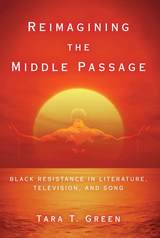
Exploring the presence of water and its impact on African descendants,Reimagining the Middle Passageoffers fresh analyses of Alex Haley’sRootsand the television adaptations; the history of flooding in Black communities in literature such as Jesmyn Ward’sSalvage the Bonesand Paule Marshall’sPraisesong for the Widow, in blues songs, and in television shows such asTreme; and stories of resistance found in myths associated with Marie Laveau and flying Africans.

He discusses novelists from Jack London to John Steinbeck and on to Joan Didion. He covers historians from Frederick Jackson Turner to Earl Pomeroy and Patricia Nelson Limerick, and artists from Frederic Remington and Charles Russell to Georgia O’Keeffe and R. C. Gorman. The author places emphasis on women painters and authors such as Mary Hallock Foote, Mary Austin, Willa Cather, and Judith Baca. He also stresses important works of ethnic writers including Leslie Marmon Silko, Rudolfo Anaya, and Amy Tan. An intriguing survey of tendencies and trends and a well-defined profile of influences and outgrowths, this book will be valuable to students and scholars of western culture and history, American studies, and related disciplines. General readers will appreciate the book’s balanced structure and spirited writing style. All readers, whatever their level of interest, will discover the major cultural inventions of the American West over the past one hundred years.

Mac Laughlin offers a theoretical and empirical analysis of nation building, taking as a case study the historical connections between Ireland and Great Britain in the clash between 'big nation' historic British nationalism on the one hand, and minority Irish nationalism on the other. Locating the origins of the historic nation in the seventeenth and eighteenth centuries, Mac Laughlin emphasises the difficulties, and specifities, of minority nationalisms in the nineteenth century. In so doing he calls for a place-centred approach which recognises the symbolic and socio-economic significance of territory to the different scales of nation-building. Exploring the evolution of Irish Nationalism, Reimaging the Nation State also shows how minority nations can challenge the hegemony of dominant states and threaten the territorial integrity of historic nations.
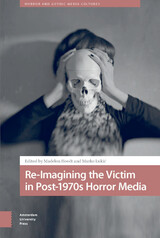
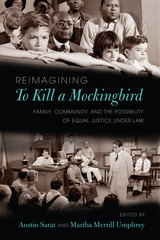
The readings in this volume peel back the film's visual representation of the many-layered social world of Maycomb, Alabama, offering sometimes counterintuitive insights through the prism of a number of provocative contemporary theoretical and interpretive questions. What, they ask, is the relationship between the subversion of social norms and the doing of justice or injustice? Through what narrative and visual devices are some social hierarchies destabilized while others remain hegemonic? How should we understand the sacrifices characters make in the name of justice, and comprehend their failures in achieving it?
Asking such questions casts light on the film's eccentricities and internal contradictions and suggests the possibility of new interpretations of a culturally iconic text. The book examines the context that gave meaning to the film's representation of race and how debates about family, community, and race are played out and reframed in law.
Contributors include Colin Dayan, Thomas L. Dumm, Susan Sage Heinzelman, Linda Ross Meyer, Naomi Mezey, Imani Perry, and Ravit Reichman.

The best current research on Philo's allegorical exegesis of Scripture
The strong element of Greek philosophy in Philo's thought has been recognized since antiquity, but his relation to the Pythagorean-Platonic tenet of reincarnation has been a neglected, even avoided, topic in research. This book confirms the view common in the seventeenth to nineteenth centuries that Philo accepted the doctrine of reincarnation even though he preferred not to speak openly about it. The book shows how allegorization enabled Philo to give a reincarnational interpretation to very different scriptural passages.
Features:
- Highlights the importance of reading Philonic parallel passages together for fuller understanding of Philo s message
- Discusses the difference between protological and universal allegory in Philo's exegesis of the first chapters of Genesis
- Introduces new concepts to Philonic research such as the corporealization of the mind (the result of transgression and a driving force for reincarnation) and monadization (the human soul's transformation into pure mind upon salvation)
READERS
Browse our collection.
PUBLISHERS
See BiblioVault's publisher services.
STUDENT SERVICES
Files for college accessibility offices.
UChicago Accessibility Resources
home | accessibility | search | about | contact us
BiblioVault ® 2001 - 2024
The University of Chicago Press









